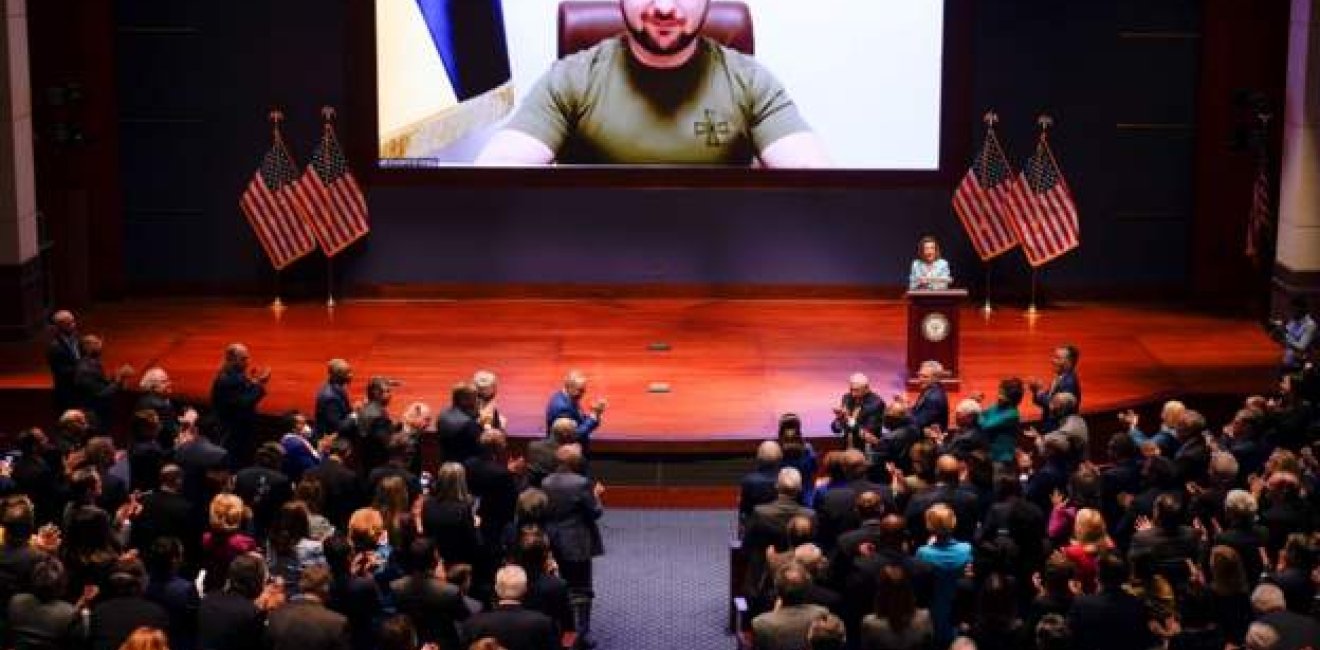
A blog of the Kennan Institute
BY MARK TEMNYCKY
As the Russian invasion of Ukraine approaches its seventh month, the war has been devastating. Tens of thousands of Ukrainians are dead, numerous cities and villages have been ruined, millions are displaced, and economic experts predict it will take billions of dollars to rebuild the country.
While the international community quickly provided financial, humanitarian, medical, and defense aid to Ukraine, the war continues without an apparent end in sight. Several countries imposed stiff sanctions on the Russian Federation, but these punishments have not forced Russia to alter its behavior, so they have been exploring other options.
Public information about the war has made it easier for the international community to identify Russian atrocities. For example, the United Nations named an expert panel to investigate war crimes in Ukraine. Ukraine’s chief prosecutor reported over 15,000 instances of suspected war crimes. The Organization for Security and Co-operation in Europe also examined these events, and it published Report on Violations of International Humanitarian and Human Rights Law, War Crimes, and Crimes Against Humanity Committed in Ukraine in mid-July.
In May, a group of independent experts from the Washington, DC-based New Lines Institute for Strategy and Policy and the Montreal-based Raoul Wallenberg Center for Human Rights concluded that Russia incited genocide in Ukraine, with the intent “to destroy Ukrainian people.” Scholars have probed the issue as well. To date, six countries and Ukraine have recognized Russia’s war crimes as genocide. The International Court of Justice (IJC) also announced that Germany had filed a “declaration of intervention…in the case concerning Allegations of Genocide under the Convention on the Prevention and Punishment of the Crime of Genocide.” Over the coming months, the ICJ will investigate these allegations. Meanwhile, Latvia, Lithuania, and Ukraine have designated Russia as a state sponsor of terrorism.
American policymakers have also been debating whether Russia’s actions in Ukraine constitute genocide. In July, Senators Jim Risch, Ben Cardin, Richard Blumenthal, Roger Wicker, Jeanne Shaheen, Rob Portman, and Lindsey Graham introduced a bi-partisan resolution calling to recognize “Russia’s actions in Ukraine…as constituting a genocide against the people of Ukraine.” While the resolution was introduced to the Senate, the Senate Foreign Relations Committee still needs to review the document. Representative Steven Cohen introduced a similar resolution in the House in June. It was referred to the House Committee on Foreign Affairs, and it has yet to review it.
The discussion on designating Russia as a state sponsor of terrorism has advanced further in Congress. Several elected officials and academics have called on the United States to label Russia a state sponsor of terrorism. In July, Senators Graham and Blumenthal introduced a resolution on designating Russia as a state sponsor of terrorism. The Committee on Foreign Relations reviewed it, and it was unanimously approved by the Senate. While it is non-binding, it sent a message to the Biden administration that Congress may take matters into its own hands by pursuing the potential designation through formal legislation. In the House, Representatives Ted Lieu, Joe Wilson, Jared Golden, Adam Kinzinger, and Tom Malinowski introduced a bipartisan bill to designate Russia as a state sponsor of terrorism, with Speaker Nancy Pelosi calling the designation “long overdue.” The bill currently has strong support. If the House passes it, the bill is likely to be passed in the Senate.
President Joe Biden, however, recently said that Russia should not be designated a state sponsor of terrorism. White House Press Secretary Karine Jean-Pierre explained that the designation “could have unintended consequences to Ukraine, and the world.” The administration believes that it could “seriously affect the ability to deliver assistance to Ukraine,” and that it could jeopardize the “Black Sea ports [grain and food] deal.”
There are additional reasons why the administration opted against the designation. First, it argued that the U.S. has already implemented harsh sanctions on Russia, and some of the sanctions associated with this designation would be duplicated. Second, the declaration could hinder future diplomatic ties between the U.S. and Russia. In other words, the Biden administration believes that future negotiations with Russia might be impossible, making it harder to negotiate the end to the Russian invasion of Ukraine.
Congress was not happy with the Biden administration’s decision, and some congressional leaders stated they would attempt to force the president’s hand. Should Congress opt to push through this issue, the legislation would be sent to President Biden’s desk. Whether or not it will choose to pursue this option remains an open question.
The opinions expressed in this article are those solely of the author and do not reflect the views of the Kennan Institute.
Author


Kennan Institute
After more than 50 years as a vital part of the Wilson Center legacy, the Kennan Institute has become an independent think tank. You can find the current website for the Kennan Institute at kennaninstitute.org. Please look for future announcements about partnership activities between the Wilson Center and the Kennan Institute at Wilson Center Press Room. The Kennan Institute is the premier US center for advanced research on Eurasia and the oldest and largest regional program at the Woodrow Wilson International Center for Scholars. The Kennan Institute is committed to improving American understanding of Russia, Ukraine, Central Asia, the South Caucasus, and the surrounding region through research and exchange. Read more

Explore More in Focus Ukraine
Browse Focus Ukraine
Talking to the Dead to Heal the Living

Ukrainian Issue in Polish Elections


